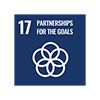-
Main Corporate Website
-
XPS
-
Glencore Technology
-
Zipatank
-
Hypersparge
-
IsaKidd
-
IsaMill
-
IsaSmelt
-
JamesonCell
-
Albion Process
-
Viterra
-
Aquarius Energy
-
Glencore in South Africa
-
Glencore in the DRC
-
Mutanda Mining
-
Kamoto Copper Company
-
Astron Energy
-
Katanga Mining Limited
-
Glencore Australia
-
Viterra Australia
-
Bulga Coal
-
Liddell Coal
-
Mangoola
-
McArthur River Mine
-
Mt Owen Complex
-
Ravensworth operations
-
Ulan Coal
-
United Project
-
Wandoan Coal
-
West Wallsend
-
Murrin Murrin
-
Mount Isa Mines
We are committed to respecting human rights in line with the United Nations (UN) Guiding Principles on Business and Human Rights and to upholding and promoting respect for human rights within our business, and throughout our supply chain, to enable people’s basic rights and freedoms.
We aim to:
- avoid causing, or contributing to adverse human rights impacts;
- prevent or mitigate adverse human rights impacts linked to our operations, products, or services through our business relationships; and
- make a positive contribution to the advancement of human rights of all people, including vulnerable groups.
Our approach
We recognise that we have the potential to impact human rights both directly through our operations, and indirectly through our relationships with joint ventures, contractors and suppliers. We are committed to upholding and promoting respect for human rights within our business, and throughout our supply chain, to enable people's basic rights and freedoms.
We demonstrate respect for human rights and seek to manage human rights risks at each stage of our business and, for industrial assets, at every stage of the project life cycle from exploration through to closure.
We align our human rights approach with the United Nations (UN) Guiding Principles on Business and Human Rights (UNGPs), which set out expectations for all businesses to respect human rights above and beyond compliance with national laws and regulations.
We seek to apply relevant international standards to understand, control and mitigate our impacts.
We are committed to implementing the UN Guiding Principles on Business and Human Rights. We uphold the UN Declaration of Human Rights and the International Labour Organization (ILO) Declaration on Fundamental Principles and Rights at Work.
We support the UN Global Compact and follow the principles set out in Organisation for Economic Co-operation and Development (OECD) Guidelines for Multinational Enterprises and OECD Due Diligence Guidance for Responsible Supply Chains of Minerals from Conflict-Affected and High-Risk Areas.
We operate in accordance with the Voluntary Principles on Security and Human Rights (Voluntary Principles), International Finance Corporation’s Standard 5 and ICMM’s Position Statement on Indigenous Peoples and Mining.
We articulate these commitments in our Code of Conduct and Group policies, including our Group Human Rights Policy and Social Performance Policy.
Embedding and managing respect for human rights across our business
We respect human rights everywhere we operate. We are committed to upholding the human rights of our people, local communities, and broader society including vulnerable groups such as women, children, Indigenous Peoples and victims of conflict, and others potentially affected by our activities.
Through our Policies, Standards, and Procedures, we are committed to respecting human rights in accordance with the UN Universal Declaration of Human Rights, the International Labour Organization (ILO) Declaration on Fundamental Principles and Rights at Work, the UNGPs and the UN Global Compact.
Our Human Rights Policy, which was developed in consultation with communities and external experts, articulates the fundamental elements of our approach, and how we fulfil our commitment to respect human rights. It aligns with the ICMM’s Mining Principles and the UN SDGs.
Our Human Rights Policy requires that if our industrial assets cause or contribute to an adverse impact on human rights, these are reported internally and investigated. We provide for, or cooperate in, processes to enable an appropriate remedy and/or a corrective action plan.
We require our industrial assets to assess their potential human rights risks as ‘High’, ‘Medium’ or ‘Low’ through using our human rights risk rating tool. Those with a ‘High’ rating must conduct a human rights impact assessment (HRIA) using external expertise. The HRIA must, amongst other factors, assess with rightsholders the nature and severity of the risks and/or impacts the industrial asset is likely to have on them, identify controls to manage the identified risks and/or impacts, and communicate a summary of the key outcomes of the HRIA to relevant stakeholders.
Our industrial assets with a ‘Medium’ or ‘Low’ risk rating must conduct a human rights risk assessment (HRRA). An HRRA utilises a method for understanding and quantifying human rights risks.
Our industrial assets are required to conduct regular human rights training for their workforce, with a focus on those workers in positions exposed to human rights concerns, such as security. This covers general human rights awareness during day-to-day activities for our wider workforce, as well as focused training on the Voluntary Principles on Security and Human Rights (VPSHR) for our security employees and contractors.
Our Board HSEC Committee oversees the implementation of our Group Human Rights Policy.
Our salient risks
Our salient risks assessment considers risks to people. Our material topic assessment considers both impact to business and impact to rightsholders. As a result, our salient risks and our material topics do not align perfectly.
We identified six salient human rights risks across the Group: labour rights, safety, health, security, inequality and water.
Enabling complaints and grievances
We aim to avoid causing or contributing to adverse human rights impacts; to prevent or mitigate adverse human rights impacts linked to our operations, products or services through our business relationships; and to make a positive contribution to the advancement of human rights of all people, including vulnerable groups.
We investigate human rights incidents to understand causes and contributing factors, and we take remedial actions to avoid them being repeated.
Where people have complaints or grievances we aim, where possible, to investigate and resolve them at the local level. All our industrial assets are required to implement complaints and grievance processes that are legitimate, accessible, predictable, equitable, transparent and rights-compatible, in line with the UNGP effectiveness criteria. These processes encourage people to raise concerns with us without fear of recrimination. We commit to investigating all concerns in a manner that respects the rights of the complainant.
Complaints and grievance mechanisms provide effective feedback channels that encourage dialogue, provide an opportunity to identify and resolve issues, and serve as an effective mechanism to prevent situations that negatively affect stakeholders. We provide guidance and support to our industrial assets as part of our efforts to ensure consistent good practice in complaints and grievance processes.
We provide guidance and support to our industrial assets to ensure consistent good practice in complaints and grievance processes. Complaints and grievance mechanisms are designed to provide effective feedback channels that encourage dialogue, provide an opportunity to identify and resolve issues, and serve as an effective mechanism to prevent situations that negatively affect stakeholders.
Channels for communication include dedicated phone lines, complaint registers in public places, SMS hotlines and offices in local towns where people can visit in person. Where necessary, assets record complaints with a witness present.
A risk assessment determines the sophistication and formality of each type of mechanism, covering elements such as existing legal frameworks in the local region and that asset’s existing or future impact on its host communities.
Our Raising Concerns platform is available to all stakeholders, including employees and contractors, and includes a 24/7 confidential reporting line. We continually monitor these processes to identify improvement opportunities.
We require our industrial assets to investigate all complaints. Concerns received through these mechanisms are reported to senior operational and departmental management and to the Board HSEC Committee on a quarterly basis.
We encourage people to raise concerns with us without fear of recrimination. Our commitment is to investigate the concerns and take necessary actions to promote respect for human rights.
Working with security providers
Our business faces multifaceted security challenges which are a function of geopolitics, industrial asset locations and the evolution of emerging threats. Globally, there is an escalation in geopolitical instability and threats, compounded by disinformation. For our industrial assets, maintaining security is essential to providing a safe working environment and managing our relationship with local communities.
We are committed to working alongside our local communities and strategic stakeholders in a way that protects the security of our workforce and the communities that interact with our industrial assets.
We work with security providers in accordance with the Voluntary Principles on Security and Human Rights (the VPSHR) and our own Security Standard. We require our security employees and private security contractors to receive training on the VPSHRs. With public security, we make clear our own commitments and our expectations for others to respect human rights and, where feasible, we document these expectations in a manner consistent with the VPSHRs.
Our internal audit and assurance programme assesses our industrial assets on a rolling cycle to review the design and effectiveness of their security management plans and adherence to the VPSHRs. The most recent audit assessed the following areas:
- security and incident management;
- security risk assessments;
- private security provider and public security body management;
- stakeholder engagement; and
- reporting.
We publish an annual report on our implementation of the VPSHRs.
Avoiding resettlement wherever possible
We seek to avoid resettlement wherever possible. When unavoidable, we follow the principles of IFC Performance Standard 5: Land Acquisition and Involuntary Resettlement.
Throughout resettlement, our priority is to ensure that all affected stakeholders have full participation. Following any resettlement, through ongoing monitoring, we seek to ensure the communities involved can maintain productive livelihoods.
Forced and child labour
We recognise the risks of forced labour, modern slavery, child labour, human trafficking and other labour standards violations within our supply chains. We are committed to preventing the occurrence of modern slavery and human trafficking in our operations and supply chains.
We publish an annual Modern Slavery Statement that sets out our approach and the steps we take to prevent modern slavery in our organisation and supply chain.
Principles we follow
-
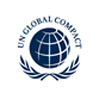 UN Global CompactVisit the website
UN Global CompactVisit the website -
 Principle 1Read more
Principle 1Read morebusinesses should support and respect the protection of internationally proclaimed human rights
-

-
ICMMVisit the website
-

-
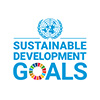 UN SD GoalsVisit the website
UN SD GoalsVisit the website -

-
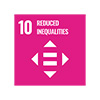
-
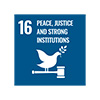
-
